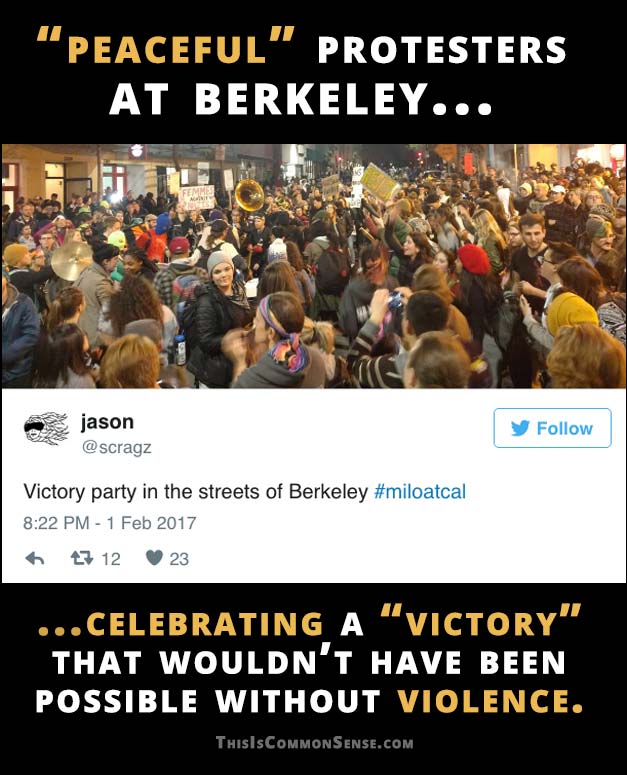“The trouble with fighting for human freedom,” wrote H. L. Mencken, “is that one spends most of one’s time defending scoundrels.”
Henry Louis Mencken (1880 — 1956), master prose stylist and social critic, knew whereof he wrote. But he also penned things to which few would give their hearty assent.
Today, we find several controversialists who, like Mencken, side with individualism against collectivism. They are raising a ruckus.
But are they “scoundrels”?
Does it matter?
The big news, last week, was the anti-Milo Yiannopoulis riot in Berkeley. But also last week, Robby Soave explains, “Black bloc ‘anti-fascists’ attacked right-wing media figure Gavin McInnes outside a New York University building,” where things got so crazy that one protester, a professor, screamed at the police for protecting Mr. McInnes when they “should” have — get this — been beating him up!
She called McInnes a Nazi. And insinuated he was a rape threat, etc.
So what did Reason writer Soave do? “McInnes,” he noted, “routinely says obnoxious things that deserve criticism. He’s something of a Diet Milo.”
What Soave did not do was ever address the Nazi charge, the rape charge, or any of the calumnies hurled at McInnes. Were Mencken the one being attacked, would he have written that the Sage of Baltimore “routinely writes obnoxious things that deserve criticism”?
Sure, true. But is that the stance you want to take?
Soave finds Milo and Gavin icky.
I feel his pain. But … when “Nazi” is the charge, calling the accused “obnoxious” and “deserv[ing] criticism”?
Gavin McInnes isn’t a Nazi. Or a rapist. And he retains free speech rights, regardless of what one thinks about his anti-feminism, or other controversial opinions.
This is Common Sense. I’m Paul Jacob.







